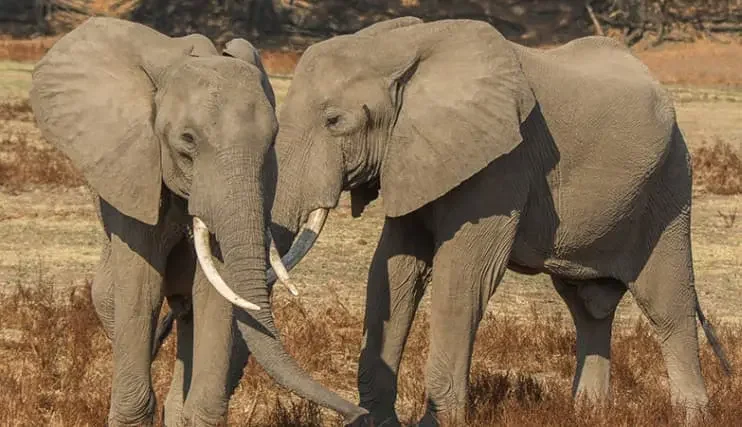
This post originally appeared on the eBay blog written by Jennifer O'Connell, eBay News Team
eBay is committed to helping protect the future on our planet of some of the world’s most endangered species.
As part of that commitment, on World Elephant Day (August 12, 2016), eBay and Gumtree joined five other e-commerce and social media companies to support a global wildlife policy framework, aimed at simplifying shopping guidelines, identifying prohibited products, and closing the loopholes that facilitate online wildlife trafficking. The framework was drawn up in collaboration with World Wildlife Fund (WWF), TRAFFIC, and International Fund for Animal Welfare (IFAW).
Online trafficking of wildlife parts is a serious problem. In a recent three-year period, approximately 100,000 elephants were killed for their ivory. In fact, it is estimated that one elephant dies every 15 minutes to facilitate the illegal trade in ivory trinkets. And it’s not just elephants at risk: Global populations of tigers, rhinos and pangolins have all been decimated by poaching in recent years.
eBay is working today and every day to protect the future of these magnificent creatures, and to keep our marketplace free of illegally trafficked goods.
Earlier this year, we joined the US Wildlife Trafficking Alliance (USWTA), a voluntary coalition of corporations, non-profits and media interests who have pledged to work with the U.S. Government to combat an illegal trade worth an estimated $10 billion every year. Our policy page outlines our position on the sale of illegal wildlife products – in 2008, for example, we implemented a global ban on ivory sales – and includes more details about state, federal and international wildlife laws. We vigorously enforce our policies, actively removing listings and banning sellers of illegal items. (You can read more about our efforts, and find out how you can be a wildlife-friendly shopper, here).
This new framework – which was also signed by Etsy, Microsoft, Pinterest, Tencent and Yahoo! – is an important and impactful next step in cracking down on the internet as a channel for wildlife traffickers.
“The online marketplace is so large that everyone needs to do his or her bit to close down the avenues for wildlife cybercriminals,” Tania McCrea-Steele of IFAW said in a blog post.
“Today’s message from online tech companies will also help to increase awareness of the need to reduce the demand for these products online.”
Speaking to CBS News, McCrea-Steele added that the level of engagement among the tech world is not necessarily new, but the scope of this agreement is. She said that, for instance, eBay's 2009 ban of ivory from all of its websites worldwide was a major step in the right direction.
Ginette Hemley, Senior Vice President of WWF, said in a statement: “The power and reach of these companies joining forces with the conservation community is groundbreaking, and will help protect threatened species from online trade. The problem doesn’t end here, but this is a crucial first step in removing the internet as a channel for wildlife traffickers.”
“With a united front, the mainstream global companies adopting a shared policy and approach will shrink the potential market access for wildlife criminals and protect consumers from being unwitting drivers of the poaching crisis,” added Crawford Allan, Senior Director Wildlife Crime, TRAFFIC.
Photo Credit: Lori Duvall, eBay